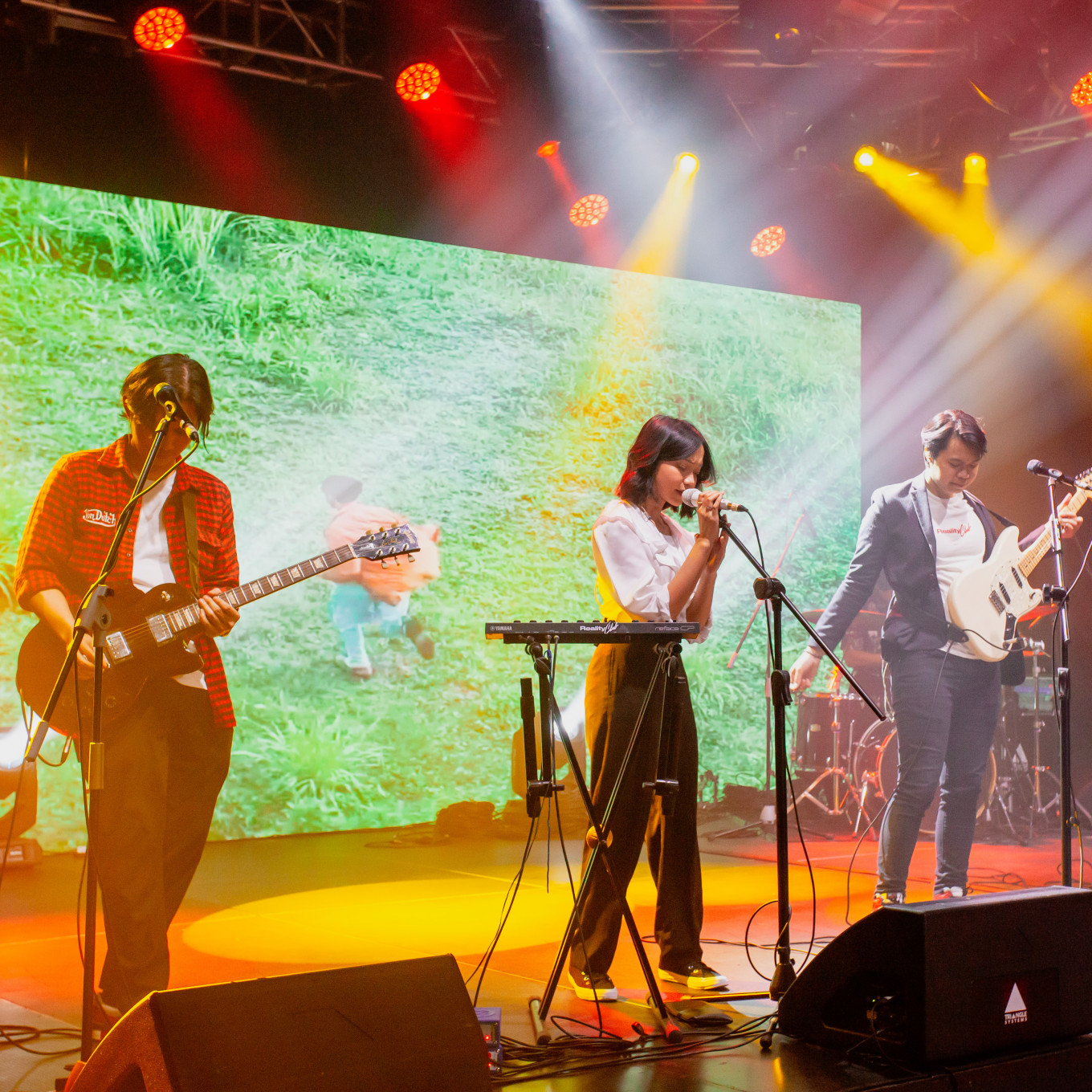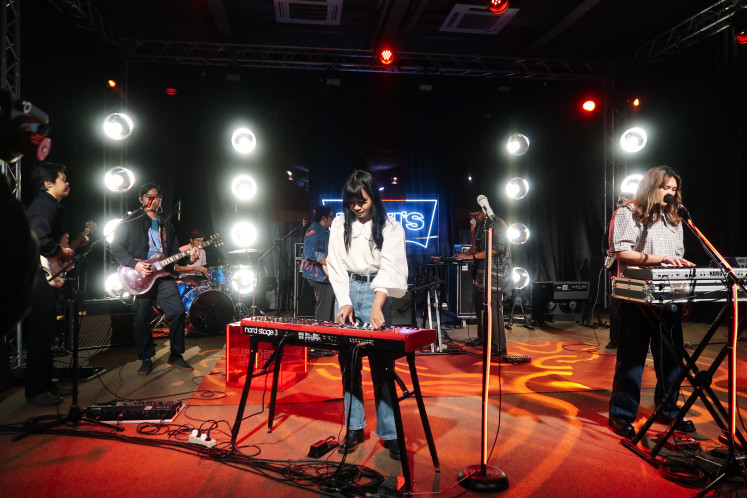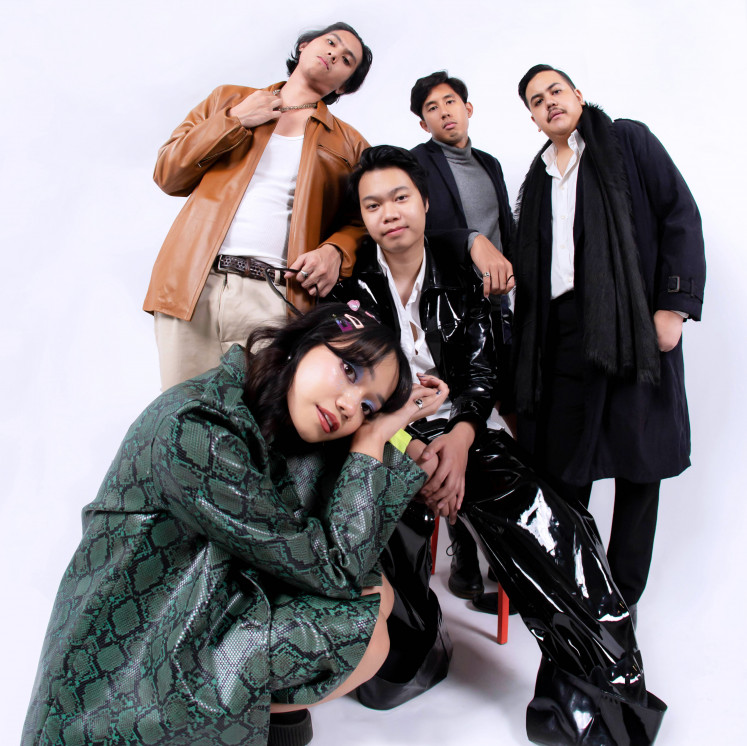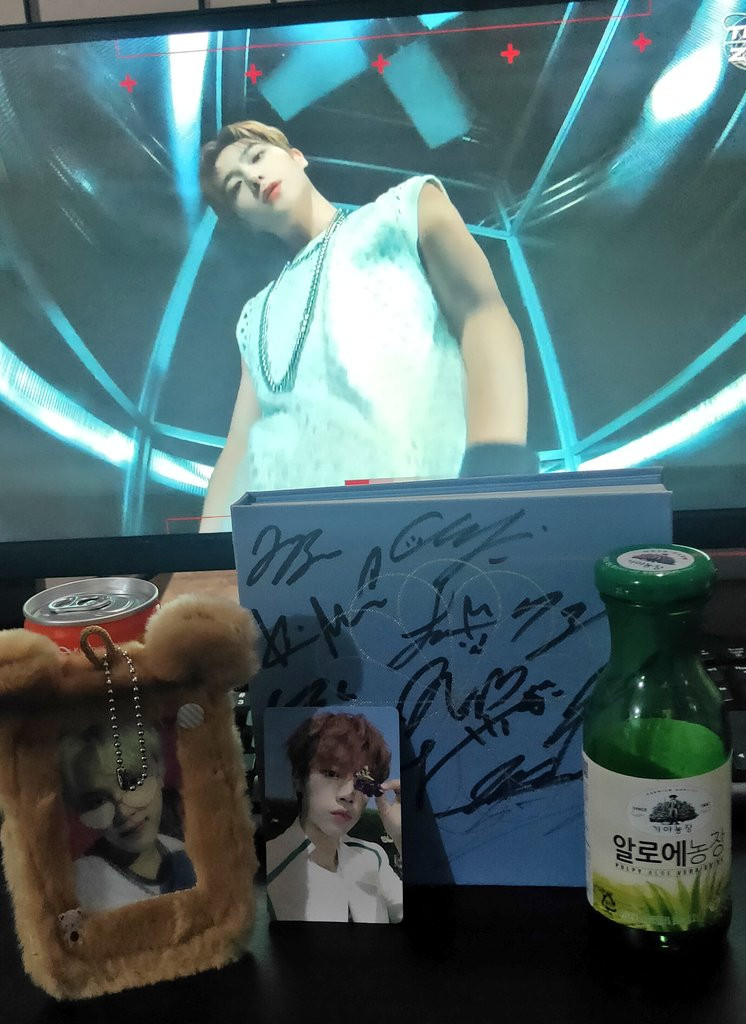Popular Reads
Top Results
Can't find what you're looking for?
View all search resultsPopular Reads
Top Results
Can't find what you're looking for?
View all search resultsOnline concerts: A satisfying alternative to offline performances?
Virtual concerts were not common pre-pandemic. But now, it has become a safe option to enjoy live performances.
Change text size
Gift Premium Articles
to Anyone
Virtual concerts were not common pre-pandemic. But now, they have become a safe option to enjoy live performances.
Musicians and fans alike might prefer offline events where they can see each other face to face and experience the stage together — a communal rush of adrenaline, endorphins and serotonin. However, as the COVID-19 pandemic has lingered on, musicians and event organizers join hands with online streaming platforms to hold a new, safer musical experience: virtual concerts.
The concept of a virtual concert is simple. The audience pays a certain amount of money to watch an exclusive concert straight from the comfort of their home. Some organizers also provide exclusive merchandise for ticket buyers for a sweet deal.
For some people, however, virtual concerts could never be an equal alternative to offline ones. Such is the case for Yui Yunita, not her real name, a chief editor at a media company in Jakarta.
"[We used to be able to] really enjoy the music in the same venue, having our squeals mixed with the screams of the audience. We could jump around freely, really enjoy [the concert] to the fullest," Yui reminisces about the halcyon days of protocol-free offline concerts.
"Concerts could be a place to meet up with online friends who share the same fandom too," she said. "It's like meeting the artist in person. [On some occasions] you can even really meet them and take photos together."
Equipment: When the organizers do not provide the setup, Reality Club or their manager will find alternatives so they can perform online. (Courtesy of Reality Club) (Personal Collection/Courtesy of Reality Club)Adapt and survive
Petrus Briyanto Adi, the founder of Festival Musik Rumah (Music Festival at Home), created a concept in which performers have mini-concerts at the houses of what they call "venue participants".
After organizing sporadic concerts from home to home since 2015, Festival Musik Rumah was held for the first time from Aug. 17 to 18, 2018.
"Festival Musik Rumah is basically [a series of] home concerts. We always try to do live broadcasts, but if that's not possible, that's okay. We will later upload the documentation so that other participants know that the concerts are taking place to maintain a sense of togetherness celebrating something with the same intention," said Petrus.
According to Petrus, the event is being held to strengthen the bonds of the Indonesian people through music in the smallest community unit — which is the family or the home itself — in all of its definitions.
Festival Musik Rumah carries on during the pandemic, although the intensity is reduced. In 2018 and 2019, there were more than 100 performing participants. Now, during the pandemic, Festival Musik Rumah only caters for 14 consecutive concerts per day.
"In 2020, there were 43 main performances and six opening performances. Then in 2021, 39 main performances and six opening performances," Petrus explained. "Of course, we don't have as large an audience as before, but most of the time, it is made up for [by the fact that people are more enthusiastic online]."
Missing ingredients: Nugi thinks the lack of interaction with the audience makes the musicians feel isolated. (Courtesy of Reality Club) (Personal Collection/Courtesy of Reality Club)Nugi Wicaksono, the bassist and vocalist of Jakarta-based indie rock band Reality Club, said his band had received an increasing number of requests to perform at online concerts.
"Throughout 2020-2021, Reality Club often performed for external events, maybe two times a month on average. So our experience of performing for external events is quite frequent," he explained.
"We once held an online live session ourselves in early 2020. It had ticketing, entry fees and all," added Iqbal Anggakusumah, the guitarist of Reality Club.
"The number of songs we perform depends on the requested duration. Sometimes we perform three, other times eight [songs]. But on average, [we only perform] seven to eight tracks [per session] because that's how much we can cover in an hour."
Bands depend on their concert organizers to provide the online concert setup. However, during the pandemic, they need to adapt more.
"Where [we should actually perform], it depends on the program," said Nugi. "There are organizers who provide the setups such as studios, green screens and all kinds of things for our online performance. However, if they don't provide it, we usually film ourselves at the studio near our drummer, Era [Patigo]'s house."
"Mostly, for internal events, they use Zoom or Google Meet. There are also times when it's channeled to the organizer's website," Iqbal added.
A welcome but inferior alternative
Whether it's for the audiences, organizers or musicians, the foes are mutual when it comes to online concerts: connection and technology gap.
"[Online concerts are] fun, but confusing at first. Especially because the first time I watched an online concert was through an application called Melon, and everything was in Korean. But I got some help from my friends on Twitter," said Rahma Dinanti, a 20-year-old university student in West Jakarta. She had a bad experience with online concerts — she once missed most of a concert as a result of a poor connection.
"The first time I watched it at home, the Wi-Fi was smooth. But when I watched it the second time at a café for a gathering with other fans, the signal was so bad that we missed out on the first 30 minutes of the performance."
Although online concerts offer a somewhat communal experience by being a one-time-only performance in contrast to VOD or static YouTube performance videos, Rahma and Yui both agree that the lack of vibe is also one of their downsides.
Stay at home: Yui thinks online concerts have their own perks, such as watching from the comfort of your own room and the affordable price. (Courtesy of Yui) (Personal Collection/Courtesy of Yui)"The biggest difference is the experience and the cost," said Yui, who also often watches these concerts as part of her job. "For online concerts, the good thing is that we don't have to go anywhere, just [sit] in front of the screen and enjoy the concert. They are also affordable, especially if someone opens a sharing screen — you can watch it just by paying around Rp 100,000 [US$6.96]. You can watch while snacking and eating in any shameful position that makes you comfortable."
"However, we can't [be there and enjoy] the performance, of course. For concert audio, it is only limited to what we can hear with the speakers [and our speakers' quality]. If you want to scream while singing along, you can't be too loud. If you actually scream [like in a real offline concert], the neighbors would be banging on your door the next second," she laughed.
The musicians have their share of grievances as well. Iqbal, for instance, said, "During a live online performance, we can't really see what the audience is like. We don't know what they really want. That's why no alternatives can beat the live interaction. Yet it's still the best that we can do."
"No interaction with the audience also makes us feel isolated," Nugi added.
Nugi deems online concerts to be complicated and one-sided. He concedes that they have helped many industry players to survive, but he also believes they will never genuinely supplant offline concerts.
"We are doing these [online performances] on the basis of necessity," said Nugi. "Maybe, for now, it's a more viable option, but personally, I don't think it can ever replace live [offline] performances."
ohmg














